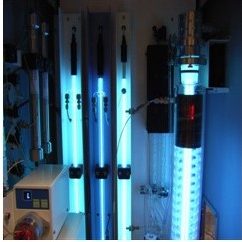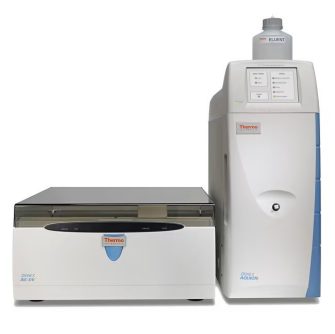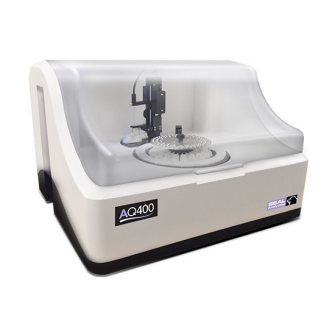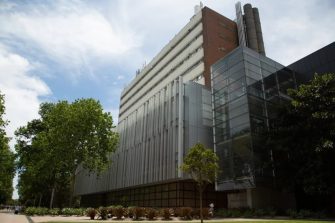Multi N/C3100 C-N analyser

Description
The Multi N/C3100 analyser performs analysis of Total Carbon, Inorganic Carbon and Total Nitrogen in aqueous solution.
Specifications
-
Thermo Pt-catalytic high temperature oxidation, (Dumas method).
-
Combustion system: The combustion furnace is a resistor-heated vertical furnace for digestion temperatures of up to 950 °C. The combustion tube (reactor) consists of quartz glass. It is filled with Pt-catalyst and auxiliary material. If the effectiveness of the catalyst decreases, the combustion tube must be filled again. The furnace head is fitted to the top opening of the combustion tube. At the bottom end, the combustion tube is connected to the condensation coil via a fork clamp.
-
Detector: C-NDIR (non-dispersive infrared absorption detector).- Gases with molecules from different atoms have specific absorption bands in the infrared wavelength range. When a light beam is sent through an arrangement of cells which contains IR-active gases, these gas components absorb a proportional share of the total radiation on their characteristic wavelengths according to their concentration in the gas mixture. The radiation receiver used in the NDIR detector is selective for CO2.
-
The measuring gas formed by the thermal oxidation of the sample is dried and then enters the reaction chamber of the chemiluminescence detector. There, the nitrogen monoxide present in the measuring gas is oxidized with ozone into activated nitrogen dioxide. Emission of light photons (luminescence) returns the molecules of the nitrogen dioxide to their original state. The luminescence is recorded. The signal is proportional to the nitrogen monoxide concentration. The total nitrogen content of the sample can be determined in this manner.
-
Detection limits (approx.): 0.5 mg/l (Dl varied by matrix)
Applications
- The Multi N/C3100 analyser is suitable for water and water extracts of a variety of samples.
- Natural products: Plant material, animal tissues, food, compost, manure.
- Environmental
- Sediments, sludges, soils
- Biological
- Chemical
Instrument location
Inductively Coupled Plasma - Elemental Analysis Laboratory (ICP)
Room B36
June Griffith Building (F10)
UNSW Sydney, NSW 2033
Email: icplab@unsw.edu.au
Rabeya Akter
-
Email
r.akter@unsw.edu.au
Khorshed Chinu
-
Email
k.chinu@unsw.edu.au
Parent facility
Explore more instruments, facilities & services
Our infrastructure and expertise are accessible to UNSW students and staff, external researchers, government, and industry.





